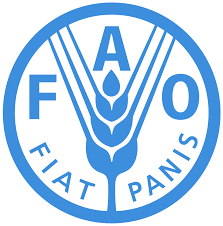
Food and Agriculture Organization
Experience: 3 to 5 Years
Skill Required: IT and ICT
Apply By: 11-09-2022
The Plant Production and Protection Division (NSP) promotes the transition to sustainable crop production systems. It promotes an integrated approach for crop production policies and practices within the framework of sustainable food and agriculture and its underlying principles: increasing productivity and resource use efficiency, conservation and management of natural resources, enhancing resilience to climate change and improvement of livelihoods and governance.
The position is located within the Locusts and Transboundary Plant Pests and Diseases Team (NSPMD), one of the six teams in the Division. NSPMD provides advice, technical support and guidance to countries on the sustainable management and control of transboundary plant pests and diseases and locusts. The Team operates the FAO’s Desert Locust Information Service (DLIS) that uses the latest geo-spatial technologies to monitor the weather, environmental conditions, and locust infestations on a daily basis and analyse a combination of field data from national survey and control teams, remote sensing imagery, and models.
Reporting Lines:
The consultant will work under the direct technical guidance of the Senior Locust Forecasting Officer and overall supervision of the Senior Agricultural Officer, the NSPMD Team Leader.
Technical Focus :
The Desert Locust Information Service (DLIS) within NSPMD Team operates FAO’s global Desert Locust early warning system to prevent devastating Desert Locust plagues. This service monitors daily weather, environmental conditions, and locust infestations to provide advice to affected countries for effective planning and implementation of monitoring and control operations and to the international community for the timely provision of assistance, especially during emergencies. Since its establishment, FAO has been the unique provider of these services throughout the world.
Desert Locust forecasting is a unique, niche subject that is not part of any university programme, as locust analysis and forecasting are not an exact science, much depends on intuition and experience. Instead, it is a learned on-the-job through a multi-year practical programme in order to obtain the necessary knowledge and experience on the relevant issues for making reliable and precise forecasts. A solid understanding and first-hand familiarity of the Desert Locust habitats and locust teams in each affected country is critical for success.
Tasks and responsibilities:
Candidates Will Be Assessed Against The Following:
Minimum Requirements:
Source: https://jobs.fao.org/careersection/fao_external/jobdetail.ftl?job=2202254